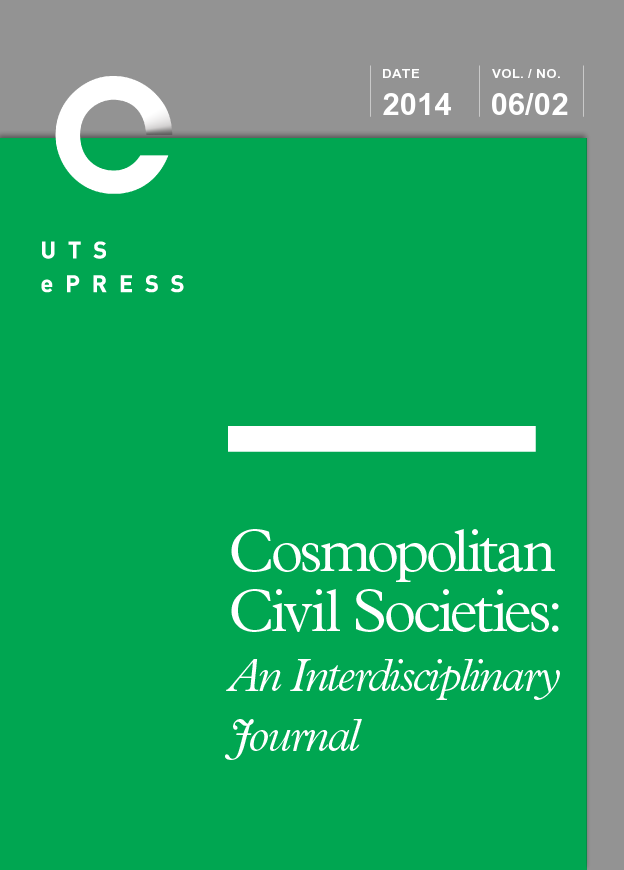Rough Justice? Exploring the Relationship Between Information Access and Environmental and Ecological Justice Pertaining to Two Controversial Coastal Developments in North-east Scotland
Main Article Content
Abstract
This paper explores the relationship between information access and environmental and ecological justice through an historical comparison of two controversial coastal developments in Aberdeenshire, North-east Scotland: the building of a North Sea gas reception terminal by the British Gas Council and the French exploration company Total Oil Marine in the 1970s; and the more recent construction of ‘the greatest golf course anywhere in the world’ by the American property tycoon, Donald Trump. These two projects have much in common, not least because each one has had actual or potential impacts on an environmentally sensitive site, and because each has also been affected by plans for another major structure in its immediate vicinity. But the Trump golf course project has taken place during a period when access to information and citizens’ influence on major planning decisions in Scotland has been significantly greater, at least theoretically. With these points in mind, the paper considers whether or not environmental justice (more specifically, procedural environmental justice) and ecological justice are now more attainable in the current era of supposed openness, transparency and public engagement, than in the more secretive and less participative 1970s. It reveals that, at the planning application stage, information on the potential environmental impact of Trump’s golf resort was more readily obtainable, compared with that provided by the Gas Council and Total forty years earlier. However, during and after the construction stage, when considering whether or not the developments have met environmental planning conditions – and whether or not ecological justice has been done – the situation with the gas terminal has been far clearer than with Trump’s golf resort. Despite the golf course being built in an era of government openness, there remain a number of unanswered questions concerning its environmental impact.
Article Details
Issue
Section
Authors who submit articles to this journal from 31st March 2014 for publication, agree to the following terms:
a) Authors retain copyright and grant the journal right of first publication with the work simultaneously licensed under a Creative Commons Attribution License that allows others to share and adapt the work with an acknowledgement of the work's authorship and initial publication in this journal.
b) Authors are able to enter into separate, additional contractual arrangements for the non-exclusive distribution of the journal's published version of the work (e.g., post it to an institutional repository or publish it in a book), with an acknowledgement of its initial publication in this journal.
c) Authors are permitted and encouraged to post their work online (e.g., in institutional repositories or on their website) prior to and during the submission process, as it can lead to productive exchanges, as well as earlier and greater citation of published work (See The Open Access Citation Advantage Service). Where authors include such a work in an institutional repository or on their website (ie. a copy of a work which has been published in a UTS ePRESS journal, or a pre-print or post-print version of that work), we request that they include a statement that acknowledges the UTS ePRESS publication including the name of the journal, the volume number and a web-link to the journal item.
d) Authors should be aware that the Creative Commons Attribution (CC-BY) License permits readers to share (copy and redistribute the work in any medium or format) and adapt (remix, transform, and build upon the work) for any purpose, even commercially, provided they also give appropriate credit to the work, provide a link to the license, and indicate if changes were made. They may do these things in any reasonable manner, but not in any way that suggests you or your publisher endorses their use.
For Volume 5 No 3 (2013) and before, the following copyright applied:
Authors submitting articles to UTSePress publications agree to assign a limited license to UTSePress if and when the manuscript is accepted for publication. This license allows UTSePress to publish a manuscript in a given issue. Articles published by UTSePress are protected by copyright which is retained by the authors who assert their moral rights. Authors control translation and reproduction rights to their works published by UTSePress. UTSePress publications are copyright and all rights are reserved worldwide. Downloads of specific portions of them are permitted for personal use only, not for commercial use or resale. Permissions to reprint or use any materials should be directed to UTSePress.
